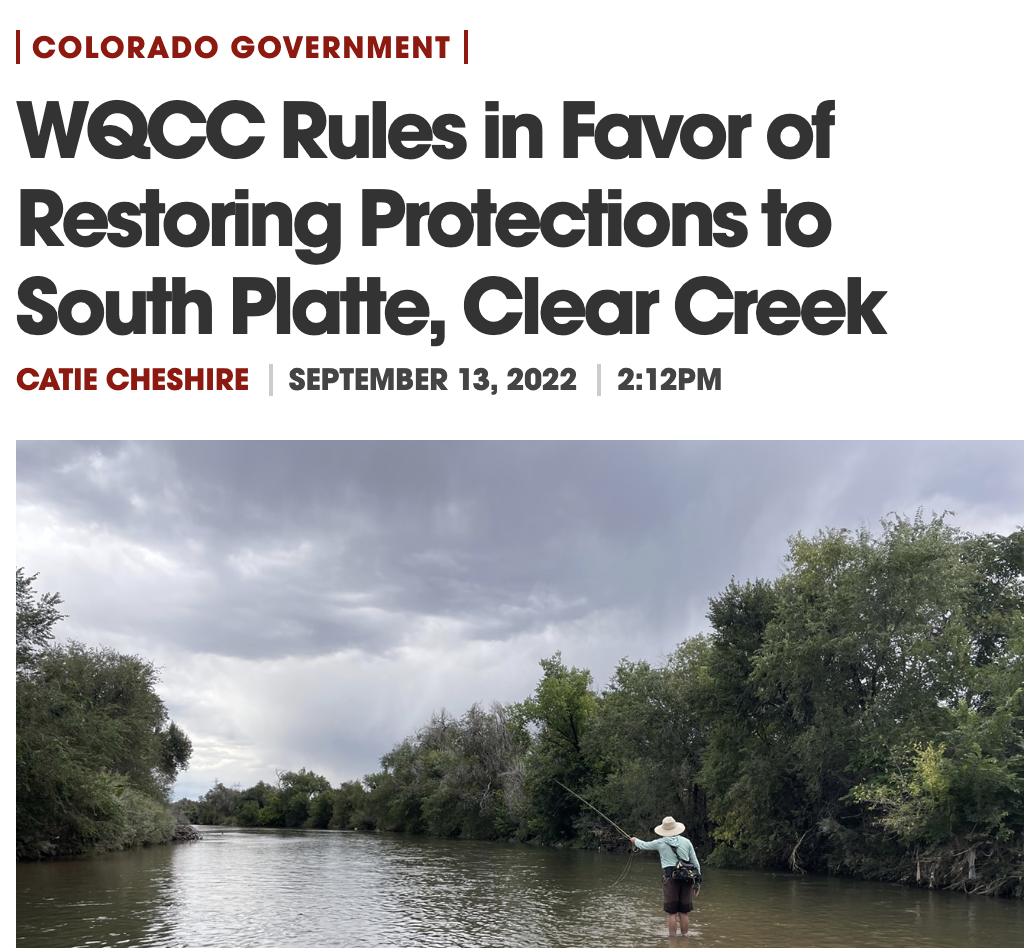
Big Wins for the DSP
In the News
-

Earth Justice 9/25
Colorado Reaches Backroom Deal with Suncor to Avoid Key Water Permit Provisions
Environmental justice and conservation groups cut out of settlement process despite intervention -

Colorado Newsline 9/25
A coalition of Colorado environmental groups is crying foul over a settlement state officials quietly reached with Suncor Energy over the terms of a water quality permit for its Commerce City refinery earlier this year.
-

Colorado TU
Denver Trout Unlimited played a key role as a funding partner in the creation of the Chatfield Reservoir Environmental Pool, a groundbreaking effort to support the health of the South Platte River.
-

Earth Justice
Conservation and Environmental Justice Groups File Administrative Appeal of Suncor Water Permit. Groups seek lower PFAS limits and shorter compliance schedules to help protect communities.
-

Colorado Sun
Suncor gets tougher “forever chemicals” and toxins limits in new Colorado water permit. The refinery’s final water permit renewal sets toxins caps and requires monitoring for benzene, selenium and other contaminants that taint Sand Creek and the South Platte River.
-

Colorado Sun
Colorado adds new water quality protections for South Platte, Clear Creek in sharp reversal. Environmental advocates cheer overturn of controversial 2020 decision that wrote off the urban waters as too polluted for saving.
-

Westword
On September 13, the Colorado Water Quality Control Commission moved to reclassify the section of the South Platte River that runs through Commerce City and the section of Clear Creek where Coors facilities release discharges as reviewable, after demoting the stretches to use-protected in 2020.
-

Colorado Trout Unlimited
Hopeless. Irreversibly damaged. A river beyond repair. These were the concepts and phrases uttered by organizations on one side of the room hoping to uphold the status quo ruling of 2020. These companies are monoliths of industry. Household names with deep pockets and much to gain.
-

The Drake
After a two-year battle with Colorado’s Water Quality Commision, a group of stakeholders including Colorado and Denver TU groups convinced the commission to reverse a 2020 ruling that had weakened protections for the Platte.
-

Metro Water Recovery Award
Metro Water Recovery is receiving a National Environmental Achievement Award from the National Association of Clean Water Agencies for the South Platte River Aquatic Life/Habitat Improvements Project.
-

The Denver Post
After 18 months of cleanup around Suncor’s oil refinery, contamination of the South Platte River is diminishing, but concentrations of cancer-causing benzene in the water remain six times higher than the national safety standard.

